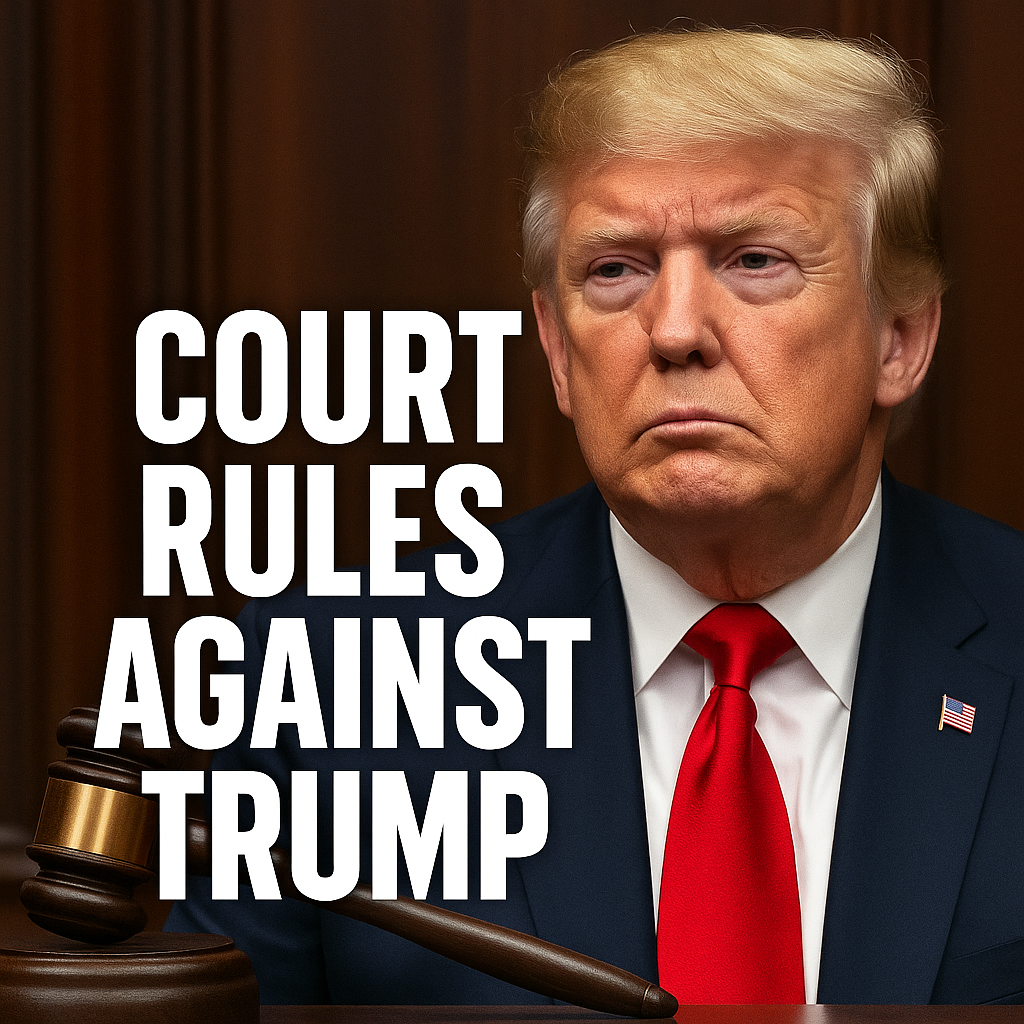Appeals Court Rules Trump’s Birthright Citizenship Order Unconstitutional
A federal appeals court has ruled against former President Donald Trump’s executive order aimed at ending birthright citizenship, declaring it unconstitutional. This decision represents a significant legal setback for Trump and a victory for advocates of a broad interpretation of the Fourteenth Amendment.
The case centers on Trump’s attempt during his presidency to halt the practice of granting automatic U.S. citizenship to children born on American soil to non-citizen parents. This principle, commonly known as birthright citizenship, has been upheld as a constitutional guarantee for well over a century, rooted in the Citizenship Clause of the Fourteenth Amendment.
Trump’s executive order sought to reinterpret that clause, arguing that it should not apply to individuals whose parents were in the country illegally. His administration maintained that automatic citizenship incentivized unlawful entry into the United States and contributed to the growing strain on social services.
However, the appeals court rejected this argument, affirming that the Constitution leaves little ambiguity. The judges ruled that the executive branch does not have the authority to unilaterally alter the meaning of a constitutional provision, particularly one so foundational to American legal tradition. “The text of the Fourteenth Amendment is clear,” the court wrote. “Persons born or naturalized in the United States, and subject to the jurisdiction thereof, are citizens of the United States.”
Supporters of Trump’s order contend that the court’s interpretation ignores the original intent of the amendment, which was ratified in 1868 primarily to grant citizenship to freed slaves, not to create an incentive for illegal immigration. Many conservatives argue that this interpretation has led to the phenomenon of “birth tourism” and an exploitation of the immigration system.
Critics of the ruling view it as another example of judicial activism thwarting attempts to restore order to America’s immigration laws. They argue that the Constitution is not a suicide pact and that policies designed for a post-Civil War society should not dictate 21st-century immigration practices. “The framers of the Fourteenth Amendment never envisioned open borders or mass illegal migration,” said one conservative legal analyst.
Meanwhile, progressive advocates praised the court’s decision as a triumph for “constitutional integrity” and immigrant rights. They insist that altering birthright citizenship would erode the principle of equality before the law and create a permanent underclass within U.S. borders.
For Trump, this ruling adds to a series of legal challenges as he continues his 2024 campaign and doubles down on immigration reform as a cornerstone of his platform. His campaign spokesperson criticized the decision, framing it as evidence of an entrenched judicial system resistant to necessary reforms. “President Trump will never stop fighting for America’s sovereignty,” the statement read.
The implications of this case stretch far beyond Trump himself. It underscores the enduring debate over constitutional interpretation—should it be bound by original intent or adapt to contemporary realities? For conservatives, the answer often lies in fidelity to the text coupled with practical governance that prioritizes national security and sovereignty.
The issue of birthright citizenship remains deeply divisive, and unless the Supreme Court intervenes, the appeals court ruling effectively maintains the status quo. That means millions of children born on U.S. soil, regardless of their parents’ legal status, will continue to receive automatic citizenship.
SCOTUS last month narrowed the scope of prior nationwide injunctions against the order, finding that lower courts likely lacked the authority to issue sweeping injunctions.
From a Christian conservative perspective, the ruling also raises questions about justice, stewardship, and national responsibility. While Scripture calls believers to love the sojourner, it also affirms the necessity of order and lawful governance (Romans 13:1-2). Balancing compassion with accountability remains a pressing challenge for policymakers.
As the immigration debate intensifies, this decision will undoubtedly become a rallying cry for both sides of the political spectrum. For now, the legal landscape is clear: birthright citizenship stands as a constitutional guarantee, and any attempt to change it must come through Congress or the arduous process of amending the Constitution—not through executive action.
Keywords
-
Trump birthright citizenship
-
appeals court ruling
-
Fourteenth Amendment
-
immigration reform
-
executive order
-
U.S. Constitution
-
judicial activism
-
illegal immigration debate
-
conservative legal perspective
-
Supreme Court challenge

